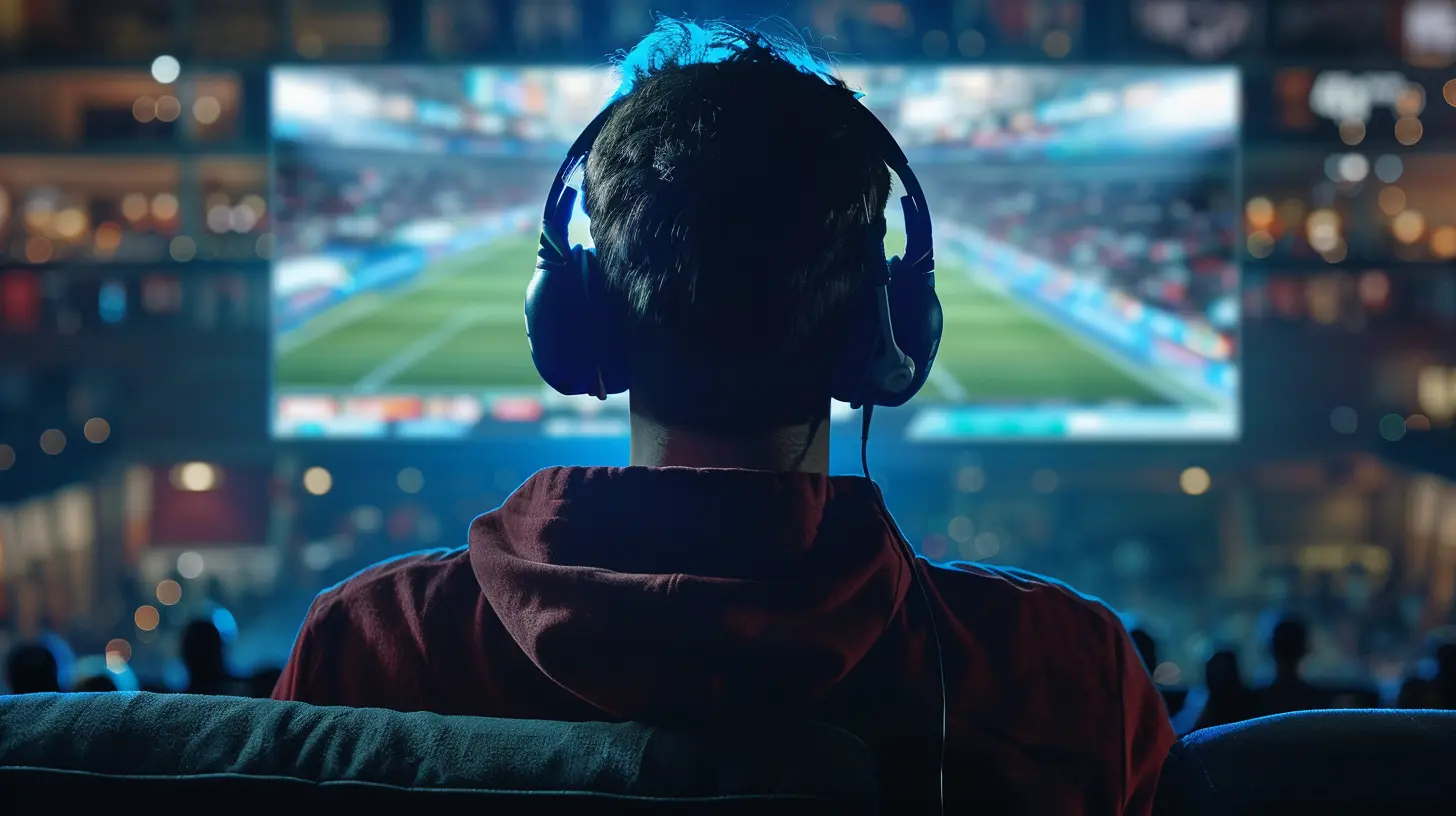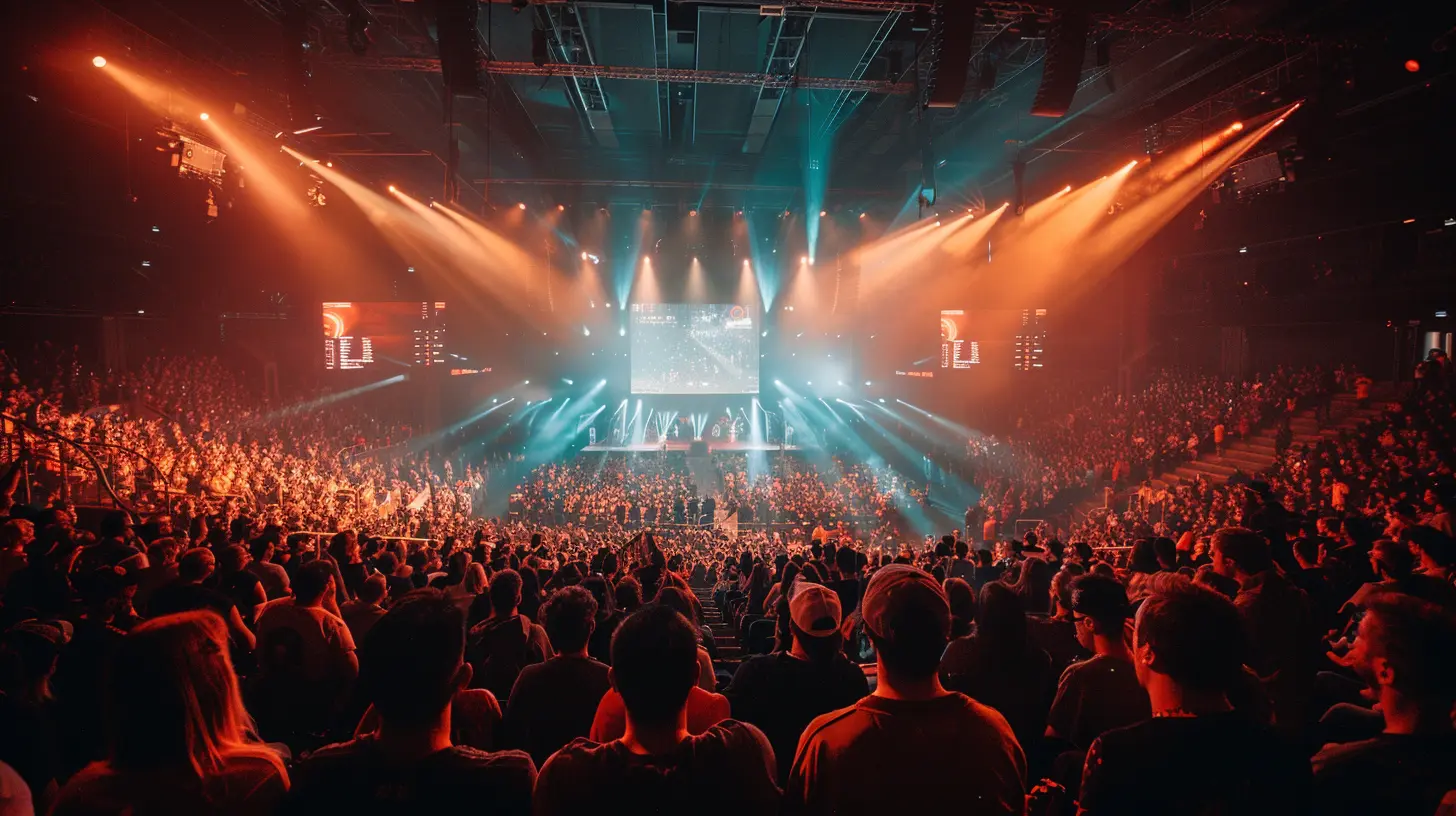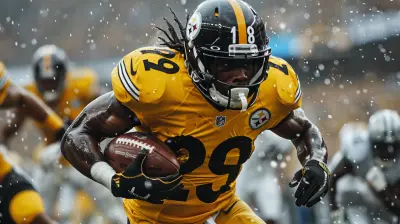The Rise of Esports and What It Means for Traditional Sports Marketing
27 May 2025
Esports has transformed from a niche hobby into a mainstream phenomenon. With millions of fans worldwide, professional gaming is now competing head-to-head with traditional sports. But what does this shift mean for sports marketing? Is esports a threat, or does it open new doors for traditional sports to reinvent their marketing strategies?
Let’s dive into how esports is reshaping the sports marketing landscape and what brands need to do to stay ahead.
The Explosive Growth of Esports
Esports isn’t just a trend—it’s a revolution. The industry has seen exponential growth in viewership, revenue, and sponsorship deals over the past decade.Mind-Blowing Viewership Numbers
Think the Super Bowl draws massive crowds? Consider this: The League of Legends World Championship pulled in over 100 million viewers in 2022—rivalling the biggest sporting events on the planet. Even casual gaming streamers command millions of followers, making platforms like Twitch and YouTube Gaming thriving hubs for engagement.Massive Revenue Streams
Esports has become a multi-billion-dollar industry. Sponsorships, media rights, advertisement deals, and in-game purchases fuel this ecosystem. In 2023 alone, esports revenue surpassed $1.5 billion, with projections expecting even higher numbers in the coming years.With such rapid growth, traditional sports brands can’t afford to ignore the esports wave. 
How Esports Marketing Is Disrupting Traditional Sports
1. Digital-First Engagement
Unlike traditional sports, where TV broadcasting dominates, esports thrives in the digital ecosystem. Fans don’t just watch games; they interact with players and communities in real time on Twitch, YouTube, and Discord.For marketers, this means shifting from passive advertising (like TV commercials) to more interactive and community-driven marketing strategies. Brands now partner with content creators, sponsor esports tournaments, and leverage social media to engage audiences more effectively.
2. A Younger & More Global Audience
Traditional sports audiences are aging. Younger generations, particularly Gen Z and Millennials, prefer watching gaming tournaments over football games. Esports provides real-time, on-demand entertainment, which aligns perfectly with the consumption habits of digitally savvy audiences.For brands, this presents a golden opportunity. If they can tap into esports, they can cultivate lasting relationships with younger consumers before they develop strong brand loyalties elsewhere.
3. Brand Sponsorships in Esports Are Skyrocketing
Major brands like Coca-Cola, Red Bull, and Nike have already jumped on the esports bandwagon. Why? Because esports sponsorships offer unmatched engagement and visibility. Players and teams wear sponsored gear, stream branded content, and even promote products during live broadcasts.In contrast, traditional sports sponsorships are often one-dimensional, relying on jersey branding or stadium advertisements. Esports marketing is more immersive and integrated, offering a deeper connection with fans. 
What Traditional Sports Can Learn from Esports Marketing
1. Emphasize Digital & Social Media
Traditional sports need to rethink their digital strategy. Esports has proven that direct fan interaction is the future. Instead of just posting game highlights, traditional sports teams should:✅ Create behind-the-scenes content
✅ Engage with fans in real-time on social media
✅ Collaborate with streamers and content creators
This kind of engagement keeps fans invested beyond game-day events.
2. Focus on Player Personalities
Esports fans don’t just watch tournaments—they follow players. Streamers like Ninja, Shroud, and Faker have built personal brands that transcend gaming itself.Traditional sports can learn from this. Rather than just promoting teams, leagues should encourage athletes to develop personal brands through social media, streaming, and collaborations.
When fans feel connected to athletes, they’re more likely to support them, buy their merch, and engage with their content.
3. Enhance Fan Participation
Esports thrives on fan participation. Whether it’s voting for in-game skins, chatting on Twitch, or even playing alongside their favorite streamers, esports allows fans to be part of the experience.Traditional sports can implement similar tactics with:
👉 Interactive live polls during matches
👉 Virtual watch parties on social platforms
👉 Exclusive digital memberships with behind-the-scenes access
More engagement = more brand loyalty. 
The Future of Sports Marketing: Esports & Traditional Sports Joining Forces
Esports isn’t replacing traditional sports—it’s enhancing it. Savvy brands are already blending both together.🏀 NBA teams own esports franchises (like the 2K League).
⚽ European football clubs sponsor esports teams (Manchester City, PSG, and Barcelona have dedicated esports teams).
🎮 Athletes are investing in gaming (LeBron James’ son Bronny is a known esports enthusiast and content creator).
As esports continues its rise, traditional sports brands that integrate gaming into their marketing strategies will stay ahead of the competition.
Final Thoughts
The rise of esports is not a threat to traditional sports—it’s an evolution. Sports marketing is shifting from one-size-fits-all sponsorships to interactive, social-driven, and engagement-focused branding.If traditional sports want to remain relevant, they must adapt. Esports has already shown marketing’s new playbook, and those who embrace it will be the industry’s future champions.
So, will traditional sports embrace the esports revolution, or will they struggle to keep up with the changing game? Only time will tell.
all images in this post were generated using AI tools
Category:
Sports MarketingAuthor:

Onyx Frye
Discussion
rate this article
3 comments
Iliana McKale
This article beautifully captures the transformative impact of esports on traditional sports marketing. The blending of both worlds opens exciting opportunities for innovation and engagement. As an avid fan of both realms, I’m thrilled to see how this evolution shapes the future of competition and community. Great insights!
June 5, 2025 at 11:40 AM

Onyx Frye
Thank you for your thoughtful feedback! I'm glad you enjoyed the article and share the excitement about the future of esports and traditional sports marketing.
Thistle Bass
Esports' growth challenges traditional marketing strategies.
June 4, 2025 at 12:41 PM

Onyx Frye
Absolutely! The unique audience and digital nature of esports require innovative marketing approaches that differ from traditional sports, emphasizing engagement over mere viewership.
Quade Forbes
Esports: where the only sweat comes from intense gaming sessions and snack breaks—traditional sports are sweating bullets over this!
June 1, 2025 at 3:25 AM

Onyx Frye
Absolutely! Esports thrives on strategy and skill, challenging traditional sports to adapt in a digital age.



